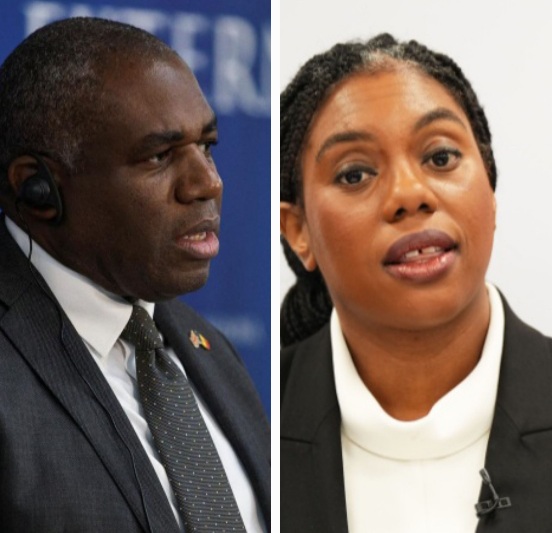David Lammy has become the United Kingdom’s Deputy Prime Minister, stepping into the role after Angela Rayner’s resignation over a tax scandal.
With this elevation, he now stands as the highest-ranking Black political leader in UK history, surpassing Kemi Badenoch’s achievements in recent years.
In a major cabinet reshuffle triggered by Deputy Prime Minister, Angela Rayner’s resignation over her underpayment of stamp duty on an £800,000 flat, Prime Minister Keir Starmer appointed Lammy as the new Deputy Prime Minister and Justice Secretary.
Lammy, who was born in Tottenham, London, to parents of Guyanese heritage, has represented Tottenham in Parliament since 2000.
He studied law at SOAS and later at Harvard, where he earned an LLM, and has long been a prominent voice on issues of justice, equality, and foreign policy.
He previously served as Foreign Secretary from 2024 until this reshuffle, and held junior ministerial roles under Tony Blair and Gordon Brown between 2002 and 2010.
By taking on the role of Deputy Prime Minister, Lammy eclipses Kemi Badenoch, who also reached notable ministerial positions but never as far as Deputy Prime Minister, becoming the UK’s most senior Black figure in government to date.
His rise marks an unprecedented level of representation for Black Britons in the highest echelons of UK government.
The appointment comes in the wake of Angela Rayner’s resignation after an independent ethics inquiry found she underpaid around £40,000 in stamp duty on a second home.
Her departure is seen as a blow to Labour’s credibility and cohesion, intensifying pressure on the government as polls show its lead narrowing against Nigel Farage’s Reform UK.
Alongside Lammy’s promotion, Yvette Cooper became Foreign Secretary and Shabana Mahmood was appointed Home Secretary. Rachel Reeves remains Chancellor, meaning the top three offices under the Prime Minister are now held by women.
David Lammy’s appointment as Deputy Prime Minister is both symbolic and substantive. It is a landmark moment for Black political representation in the UK, reflecting his stature as one of the country’s most experienced politicians and the urgent need for steady leadership amid a sensitive moment for the Labour administration.

